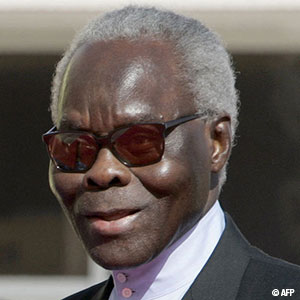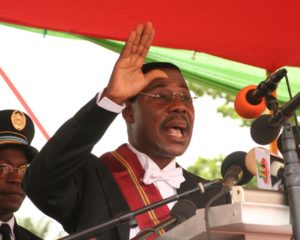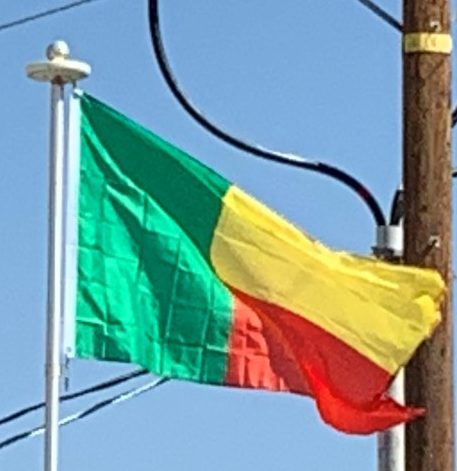On 7 May 1972, Maga ceded power to Ahomadégbé. On 26 October 1972, Lt. Col. Mathieu Kérékou overthrew the ruling triumvirate, becoming president and stating that the country would not “burden itself by copying foreign ideology, and wants neither Capitalism, Communism, nor Socialism”. On 30 November 1974 however, he announced that the country was officially Marxist, under control of the Military Council of the Revolution (CMR), which nationalized the petroleum industry and banks. On 30 November 1975, he renamed the country to the People’s Republic of Benin.
The CMR was dissolved in 1979, and Kérékou arranged show elections in which he was the only allowed candidate. Establishing relations with China, North Korea, and Libya, he put nearly all businesses and economic activities under state control, causing foreign investment in Benin to dry up. Kérékou attempted to reorganize education, pushing his own aphorisms such as “Poverty is not a fatality”, resulting in a mass exodus of teachers, along with numerous other professionals. The regime financed itself by contracting to take nuclear waste, first from the Soviet Union and later from France.

In 1980, Kérékou converted to Islam and changed his first name to Ahmed. He changed his name back after claiming to be a born-again Christian. In 1989, riots broke out when the regime did not have enough money to pay its army. The banking system collapsed. Eventually, Kérékou renounced Marxism, and a convention forced Kérékou to release political prisoners and arrange elections. Marxism–Leninism was abolished as the nation’s form of government.
The country’s name was officially changed to the Republic of Benin on 1 March 1990, after the newly formed government’s constitution was completed.
In a 1991 election, Kérékou lost to Nicéphore Soglo. Kérékou returned to power after winning the 1996 vote. In 2001, a closely fought election resulted in Kérékou winning another term, after which his opponents claimed election irregularities.
In 1999, Kérékou issued a national apology for the substantial role that Africans had played in the Atlantic slave trade.
Kérékou and former president Soglo did not run in the 2006 elections, as both were barred by the constitution’s restrictions on age and total terms of candidates.
On 5 March 2006, an election was held that was considered free and fair. It resulted in a runoff between Yayi Boni and Adrien Houngbédji. The runoff election was held on 19 March and was won by Boni, who assumed office on 6 April. The success of the fair multi-party elections in Benin won praise internationally. Boni was reelected in 2011, taking 53.18% of the vote in the first round—enough to avoid a runoff election. He was the first president to win an election without a runoff since the restoration of democracy in 1991.

In the March 2016 presidential elections, in which Boni Yayi was barred by the constitution from running for a third term, businessman Patrice Talon won the second round with 65.37% of the vote, defeating investment banker and former Prime Minister Lionel Zinsou. Talon was sworn in on 6 April 2016. Speaking on the same day that the Constitutional Court confirmed the results, Talon said that he would “first and foremost tackle constitutional reform”, discussing his plan to limit presidents to a single term of five years in order to combat “complacency”. He also said that he planned to slash the size of the government from 28 to 16 members.
Geography:
Benin is a narrow, north-south strip of land in West Africa. Benin is bounded by Togo to the west, Burkina Faso and Niger to the north, Nigeria to the east, and the Bight of Benin to the south. The distance from the Niger River in the north to the Atlantic Ocean in the south is about 404 miles. Although the coastline measures 75 miles, the country measures about 202 miles at its widest point.
